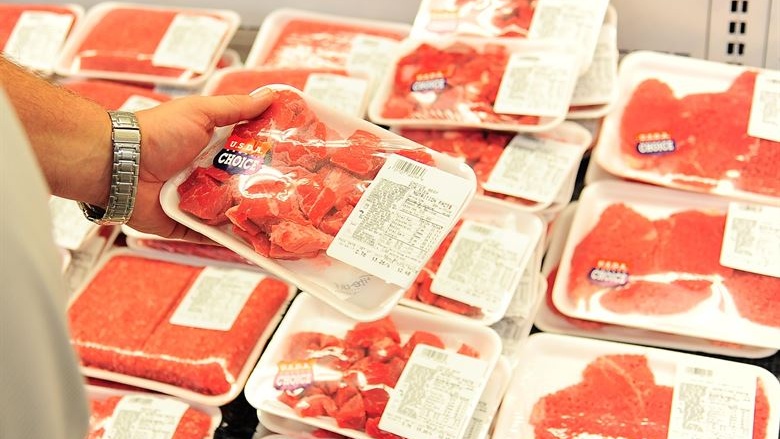A study that made headlines this week suggested red and processed meat consumption may be healthier than we think. But, according to The New York Times, the study’s lead author failed to disclose his ties with the meat industry.
The study was published in the Annals of Internal Medicine earlier this week. It advised people to continue their “current consumption” habits of red and processed meat even despite warnings from the World Health Organization that these foods are carcinogenic, particularly processed meats.
The findings had doctors and pundits encouraging consumers to “go eat a steak.” Some even made it political: “[The study] changed my views and it made me wonder about all the Democratic attacks lately on our gaseous cattle friends that we actually rely on for red meat,” Dr. Marc Siegel told Fox News host Tucker Carlson. “I have to re-look at red meat.”

Ties to Big Meat
But according to The Times, the study’s lead author, Bradley C. Johnston, an epidemiologist at Dalhousie University in Canada, failed to disclose conflicts. The Times reports that as recently as December 2016, “he was the senior author on a similar study that tried to discredit international health guidelines advising people to eat less sugar.”
That sugar study, which also appeared in the Annals of Internal Medicine, “was paid for by the International Life Sciences Institute, or ILSI, an industry trade group largely supported by agribusiness, food and pharmaceutical companies and whose members have included McDonald’s, Coca-Cola, PepsiCo and Cargill, one of the largest beef processors in North America.”
Dr. Johnston said he did not have to disclose those ties. “That money was from 2015 so it was outside of the three year period for disclosing competing interests,” said Dr. Johnston. “I have no relationship with them whatsoever.”
But the conflicts of interest on the sugar study, which was also highly criticized, and now undermining known risks of eating meat, are fueling even more criticism of Dr. Johnston.
The Times reports that Dr. Frank Hu, the chair of the nutrition department at the Harvard T.H. Chan School of Public Health, was “stunned” to discover Dr. Johnston’s connection to both papers. He told The Times that a tool Dr. Johnston used, called GRADE, is predominantly relied on for rating clinical drug trials, not the impacts of diet. He says it allowed Dr. Johnston’s team to undercut the recommendations for limiting meat (and sugar) consumption.
“You can’t do a double-blinded placebo-controlled trial of red meat and other foods on heart attacks or cancer,” Dr. Hu said. “For dietary and lifestyle factors, it’s impossible to use the same standards for drug trials.”

Red Meat’s Risks
The study has seen a slew of criticism. While it may have temporarily sidestepped the health risks, experts are quick to point out it doesn’t give a pass for its impact on the planet. And what’s bad for the planet is inherently risky for human health, too.
“[H]uman health is about more than individual cases of heart disease or cancer,” Tom Philpott wrote for Mother Jones. “The US style of industrial meat production is a driver of climate change. And climate change brings all manner of health risks, from broadening the range of disease vectors like mosquitos to food shortages to increasing risk of deadly floods, fires, and heat waves. And there’s a pretty solid consensus that if we’re going to avoid the ravages associated with a 2°C rise in average temperatures over pre-industrial levels, then we’re going to have to cut way back on meat.”
The findings also don’t touch on the ethical implications, either. Animal welfare is a leading driver behind Millennials shifting to a plant-based diet. Even farmers are finding the burden too much to bear. The film “73 Cows” won a BAFTA earlier this year. It detailed one farmer’s ethical awakening and how he moved his herd of cows to a sanctuary and started growing vegetables instead.


